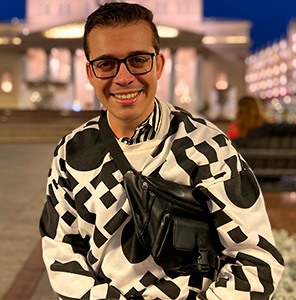Hello, everyone! Long time no see, right?
So, 2021 has barely started and here I am, after a long hiatus and fewer resolutions later, getting back to writing and sharing my thoughts and experience with the world.
The year could not have started better. I willingly did the Train The Trainer Course and spoiler alert… it opened up a whole new world of limitless possibilities and novel ideas for CPD. Before I delve into my experience, promptly let me break down to you some of the course aims and the entry requirements,
COURSE AIMS:
To help course participants
design and deliver their own training sessions;
Observe and give feedback to other teachers;
Understand how to develop further as a trainer.
ENTRY REQUIREMENTS
Be 21 years old;
Language Proficiency starting at B2 or higher;
Teaching qualification.
When I first enrolled in the course, I did not know what to expect. Since I have recently been promoted to local Senior teacher in my school, I saw it as an excellent opportunity to gain some foundational knowledge about the key elements, and theories of teacher training as well as network with top-notch Brazilian ELT practitioners to find out about good practices back in my homeland that could be promptly implemented in mother Russia. I sincerely believe I was right!
Due to the whole Covid mayhem across the world, the course was entirely delivered online over the winter Holidays. There were pre-session tasks to be completed prior to the live Zoom session as well as post-session readings and class assignments to help the course participants critically reflect on the course content. Since the course ordinarily comes “pre-packaged” from Cambridge, it is up to the tutor to personalize its content to the CPs’ context and add some personal touches to make it more enthralling and appeal to the target audience. Our course tutor, who is based in Thailand at this very moment, naturally did a tremendous job. Not only did he facilitate the course content as gracefully as he always does (he was my Celta and ICELT tutor back in Brazil.), but he was able to give us a lot of valuable insights into the world of teacher training by sharing his personal experience with all of us.
I cannot go on without paying tribute to my online colleagues as well. The best part of actively attending CPD courses and training sessions is the (sometimes) million-to-one chance to interact and establish a liaison with such a diverse group of experienced teachers from various corners of Brazil and the world. They have divinely inspired me to wisely keep up being an agent of fundamental change in Russia and gave me the necessary ammunition to keep on fighting the good fight. Their stories of success and failure have undoubtedly inspired me to be a better teacher, to seek CPD, and most importantly, to spark the trigger of learning in my student and trainees-to-be. To all my fellow Brazilian ELT professions: A HEARTFELT THANKS! You have all inspired me to keep the ball rolling, no matter how cold it is – quite literally- and what problems might crop up along the way,
KEY TAKEAWAYS
Am I allowed to popularly call myself “a certified teacher trainer from Cambridge”? Perhaps, but I do not think I am being honest to myself and other teacher trainers. I will properly explain: I have just ventured out into this unknown land. I have earnestly started seeking the necessary qualifications to finally explore what was once rocket science to me. Some teachers might say that I am being (again) too hard on myself. Perhaps I am. However, I genuinely want to make sure I am well-suited, and qualified to perform a job that is so dear to a whole bunch of trainers out there. I will digress again… when you visit the webpage for the course, it is stated that “course participants will be able to train teachers on the Celt-p/Celt-s. How is that possible? What about language proficiency? Knowledge of methods and approaches? Experience? I for one do not think that a B2-level trainer can successfully train teachers on these Cambridge Courses given their high standards. On the other hand, I do understand this is the reality of most teachers in Brazil and Russia, and to make matters worse, some of them do not even reach the A2+ level in the CEFR. I profusely apologize for digressing, but I feel it was needed.
I shall say, though, that I have learned a lot. The course experience was worth every single penny I invested. Theory of group formation? WOW! Andragogy? I didn’t even know it was a real name (LOL). The list of key topics is extensive; perhaps not for this post. So, without beating around the bush, here is my ultimate verdict: If you are a newbie trainer, then brace yourself for countless tons of learning opportunities and mutual exchanges in the classroom that will undoubtedly take place. If you are an autonomous or lead trainer, I am certain there will be lots of learning affordances; be it interacting with inexperienced trainees or while invariably doing some reading or critically reflecting on your own context. The bottom line is… you will not leave the training course empty-handed, for there will infallibly be eye-opening takeaways that might come in handy in the near future.
 By: Danilo Ribeiro ELT
By: Danilo Ribeiro ELT
Danilo has been teaching English for 10 years. He holds a BA in translation and interpreting, the Cambridge CELTA, Delta modules 1 and 3, the C2 Proficiency, IH CAM, and the Train the Trainer certificate. He has been teaching English in Russia for four years. He can be found on @daniloribeiroelt.

